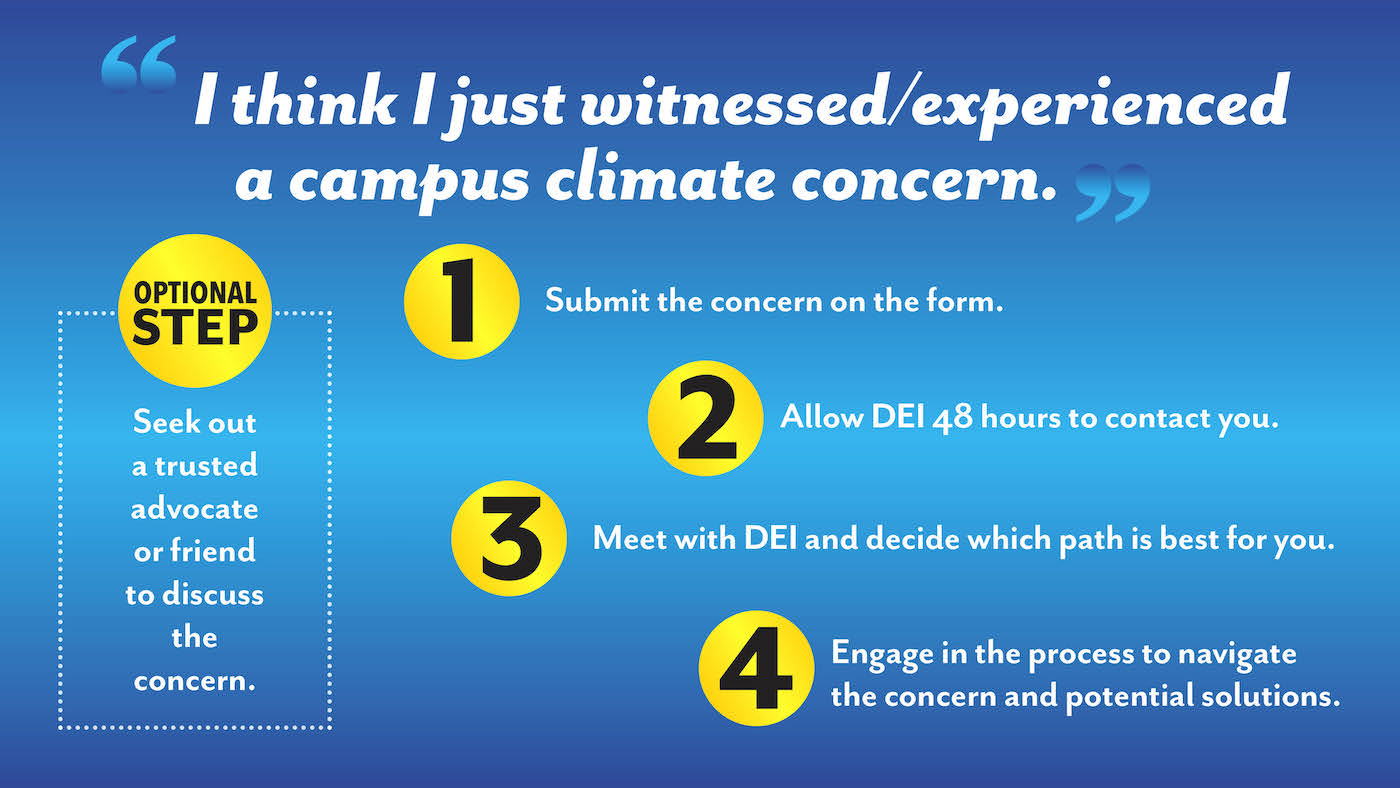
Campus Climate Support Submission Protocol

Seek Out a Trusted Advocate
When climate concerns arise, you may seek out someone you trust. This step might feel like the right first step for many, and that is okay, but to submit a concern, you must complete the form.
Submit a Concern
You may submit the form anonymously or include your name. If you submit it with your contact information, we will reach out to help you navigate the incident and determine available support to help address the incident. We take all concerns seriously and help inform places and spaces on campus that may need training or a more intentional partnership with the Division of Diversity, Equity, and Inclusion (DEI).
Working with DEI to Determine Potential Solutions
After we review your concern, a staff member from DEI will follow up with you (unless you submitted the concern anonymously) to assess any immediate support needs, ask any necessary follow-up or clarifying questions, and discuss potential next steps for you and other impacted individual(s). At that time, you will learn about the different supports on campus, the formal policies, procedures, and informal protocol, so you can make a decision that is best for you in how you want to address your concern. If you choose to engage in the formal policies, we will refer you to the appropriate office. Campus Climate Support does not determine policy violation or implement consequences.
If you choose to engage in the informal protocol, outcomes include (but are not limited to):
- Affirmation and support for impacted individual(s)
The primary goal of this submitting tool is to provide support for individuals and groups on SCSU’s campus who have been impacted by climate concerns. DEI works with impacted individuals to determine the type of response sought and to initiate an appropriate follow up. - Educational conversation with responsible party
Often, individuals who have been impacted by a climate concern are focused on ensuring the responsible party understands how and why their behavior caused harm. In such cases, a member of DEI will arrange for an informal conversation with the responsible party to help them take perspective and understand the impact of their behavior on others. - Restorative Practice circle or conference
In some cases, impacted individuals would like a space to explore and discuss the impact of an incident and how they will move forward. The restorative practice process allows for naming harm, listening to and educating one another, and for building, repairing and/or restoring relationships and communities. This is a voluntary option for all parties involved.
*Statement to the campus community
In most cases, the impact of a climate concern is localized to the individual(s) present. However, in some cases the impact either expands to the broader campus community (often through various forms of media) or the incident occurs in a public space and the responsible party is unknown. In such cases, the university may opt to send a message to the campus community to name the incident and its impact and to encourage impacted individuals to seek support.
Email for support: DEI@SouthernCt.edu